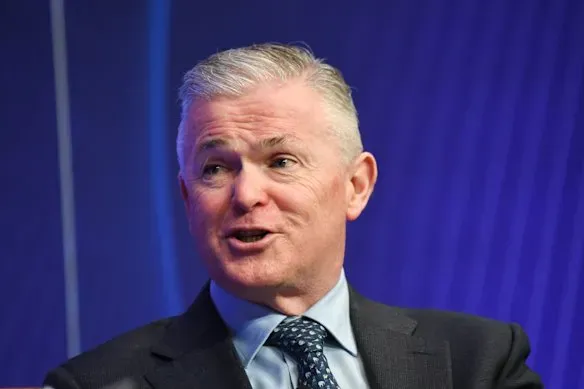Labor’s environmental credibility is increasingly in question following its recent decision to approve the North West Shelf expansion, a project that is set to significantly increase gas emissions. Critics argue that this move not only appeases fossil fuel lobbyists but also contradicts the Labor government’s commitment to reducing greenhouse gases. With the global focus on climate change intensifying, allowing such a gas project approval raises serious concerns about the future of our environmental policies. The decision risks undermining years of progress in cutting emissions across various sectors, including energy and transportation. As we witness an alarming increase in pro-fossil fuel agendas, the implications of these choices could haunt Labor as they strive to position themselves as a leader in combating climate change.
The recent developments surrounding Labor’s stance on environmental policies have provoked a critical dialogue regarding their commitment to sustainability. As the expansion of fossil fuel initiatives like the North West Shelf proceeds, many question the integrity of the party’s decisions in light of their previous efforts to limit carbon output. This contradiction highlights a broader struggle between reliance on traditional energy sources and the urgent need for a transition to cleaner alternatives. The vocal opposition from environmental groups and community stakeholders underscores the complexity of balancing economic interests with ecological responsibility. The discourse around government-sanctioned gas initiatives and their impact on climate dynamics is becoming increasingly significant in the public domain.
Labor’s Environmental Credibility at Stake
The recent decisions made by the Labor government regarding the North West Shelf expansion have raised substantial eyebrows among environmental advocates and citizens concerned about rising gas emissions. With gas project approvals that contradict the government’s long-standing commitment to reducing emissions, the approval of such projects calls into question their environmental credibility. Critics argue that by allowing expansions that significantly add to on-site emissions—estimated at 7.7 million tonnes per year—the Labor government is prioritizing short-term economic gains over sustainable environmental practices.
This decision aligns with a worrisome trend of accommodating fossil fuel lobbyists who have gained unprecedented influence in policy discussions. The Labor government’s choices may lead to the perception that they are shifting away from their original commitments to the environment. Such contradictions can erode public trust and diminish their standing with constituents who expect bold leadership in the fight against climate change.
Frequently Asked Questions
How does Labor’s environmental credibility affect gas emissions policies?
Labor’s environmental credibility is at stake with its recent approval of gas projects like the North West Shelf expansion, which is expected to significantly increase gas emissions. Critics argue that this decision contradicts the government’s earlier commitment to reduce emissions from electricity and industry.
What are the implications of the North West Shelf expansion on Labor’s environmental credibility?
The North West Shelf expansion is seen as detrimental to Labor’s environmental credibility, as it allows for an annual increase of 7.7 million tonnes of emissions. This move raises concerns about the government’s genuine commitment to addressing climate change while catering to the fossil fuel lobbyists.
Why is Labor facing criticism from environmentalists regarding gas project approvals?
Labor is facing criticism from environmentalists due to its decisions to approve gas projects, such as the North West Shelf expansion. These approvals are viewed as prioritizing short-term economic gain over long-term environmental sustainability, thus damaging Labor’s credibility on environmental issues.
Are Labor’s gas emissions reduction goals still credible after recent government decisions?
After approving projects like the North West Shelf expansion, many question the credibility of Labor’s gas emissions reduction goals. The contradiction between promoting renewable energy and facilitating fossil fuel extraction undermines public trust in the government’s environmental commitments.
How are fossil fuel lobbyists influencing Labor’s environmental decisions?
Fossil fuel lobbyists are influencing Labor’s environmental decisions by advocating for projects such as the North West Shelf expansion, which undermine environmental policies. Such influence can lead to compromises that harm Labor’s reputation and commitment to reducing gas emissions.
What stance should the Labor government take on gas companies to maintain its environmental credibility?
To maintain its environmental credibility, the Labor government should prioritize domestic gas supply for Australian consumers and resist the pressure from gas companies to export resources for profit. This approach would align better with a commitment to reducing overall gas emissions.
How can Labor rebuild its environmental credibility amidst gas project approvals?
Labor can rebuild its environmental credibility by implementing stronger regulations on gas emissions, committing to renewable energy investments, and transparently addressing the concerns raised by environmentalists about the North West Shelf and other gas projects.
| Key Point | Details |
|---|---|
| Gas Decision | The approval of the North West Shelf expansion has been criticized as detrimental to Labor’s efforts in environmental protection. |
| Environmental Emissions | The project is expected to increase emissions by 7.7 million tonnes per year, contradicting Labor’s commitment to cut emissions. |
| Public Sentiment | There is growing concern among the public over prioritizing short-term gains from gas at the expense of long-term environmental sustainability. |
| Fossil Fuel Lobbyists | Labor’s decision appears to empower fossil fuel lobbyists, raising questions about the integrity of environmental commitments. |
| Domestic Gas Supply | Critics argue that the government should prioritize supplying gas to Australian consumers rather than exporting it overseas. |
Summary
Labor’s environmental credibility has been severely compromised by its recent decision to approve gas projects like the North West Shelf expansion, which significantly increases emissions. This move has raised questions about the integrity of their environmental policies and has sparked national debate on the prioritization of fossil fuel advantages over sustainable practices. To regain trust, the Labor government must align its actions with its stated goal of reducing carbon footprints and championing renewable energy solutions.

